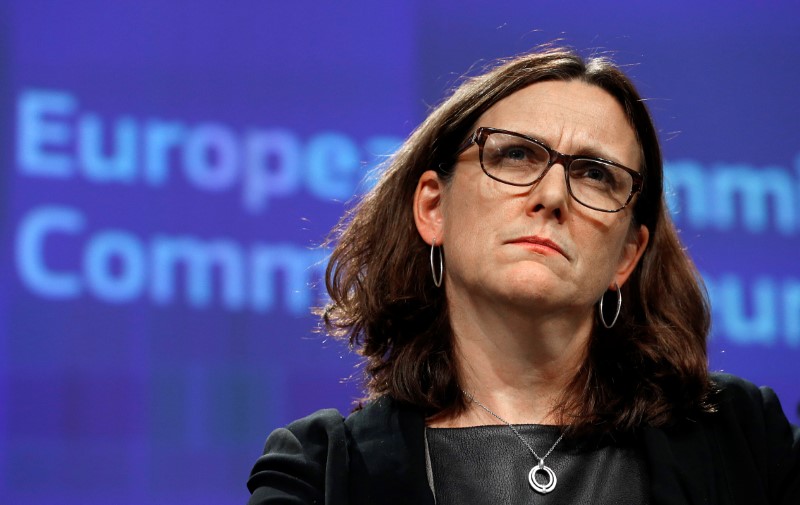(Repeats to additional subscribers)
BRUSSELS, Sept 7 (Reuters) - The European Union is rallying over 50 countries to stop the trade of products used for torture or the death penalty, which could make it harder for the United States to carry out executions, the EU's trade commissioner said on Thursday.
The bloc will call for an alliance against trade in goods such as spiked batons and lethal drug cocktails at the United Nations in September following an EU move last year to strengthen its own export ban the EU's trade chief Cecilia Malmstrom told a news conference.
Abolition of the death penalty is a central tenet of the EU's foreign policy and is also a requirement for countries seeking to join the 28-nation bloc.
"Torture is banned all over the world under international law but despite this terrible things happen and products that can be used to torture people can be traded all across the world and also in order to execute people," said Malmstrom, a Swedish liberal who as a former EU home affairs commissioner and EU lawmaker met torture victims and campaigned on rights issues.
The commissioner said the alliance would seek to control better the export of goods that could be used for torture and to assist customs authorities to shut down the trade, with technical assistance and information exchange.
"We are committed to protect human rights, to the fight against torture and abolition of the death penalty so this is an alliance to take concrete action, to stop this awful trade or at least make it significantly more difficult to obtain these tools," Malmstrom said.
Tougher EU laws, including a 2011 export ban on lethal-injection drugs, are making U.S. executions harder to perform by cutting off supplies by large-scale manufacturers of sodium thiopental, an anaesthetic in such injections.
Mongolia, which outlawed the death penalty in 2015, and Argentina, which has similar legislation to the EU, will jointly launch the initiative with the EU during the United Nations General Assembly week on Sept. 18 in New York.
The Commission said it expected that more than 50 countries would join on the day of launch. Australia, New Zealand, Canada and Norway are among those expected to back the plan.
Malmstrom said countries with the world's worst human rights offenders had not been invited, although were free to attend the launch. Iran, Saudi Arabia and China carried out the most executions last year, according to Amnesty International.
